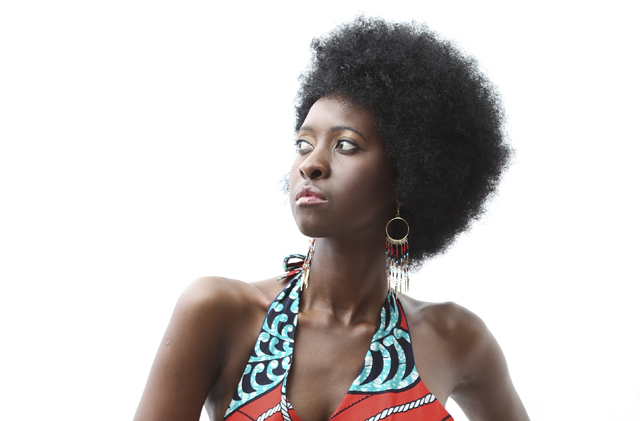Isabel Novella, a Mozambican singer and songwriter, returns to New York following her performance last summer at the World Music Institute’s Lusophone festival. Advocating on behalf of the Albino Association of Mozambique, Novella splits her time between social activism and music as she promotes her latest single, “Ntsumi.” She has released two albums under the South African label Native Rhythms and has toured throughout Europe and Africa.
Simon DeBevoise: You’re back in New York! To begin, can you talk about the tour that you have been on? What are some of your goals for the tour?
Isabel Novella: I’m coming from Mozambique, which is where I am based, and I have a contract with a South African label, so I’ve been doing concerts in Mozambique, South Africa, and at some major festivals around Africa. I’m in New York to do two things. I work with this organization in Mozambique, the Albino Association of Mozambique, and since we’re having trouble on that side with albinos being killed and hunted, a cause I’ve been advocating for, I am here to share my experience working with that organization and conducted some workshops for the International Albinism Awareness Day on June 13. And this is mainly the work that I came here to do, though I also want to try to meet musicians and find new musical opportunities.
What drove you to fight for albinism in Mozambique?
I decided to support this cause because last year, when I was in New York, I saw shocking images and reports online that albinos were being hunted in my country. I thought that it was an important subject because we do not have a lot of resources in Mozambique to address these issues. If we don’t recognize that these people are being killed then it’s as if they are living a normal life. Seeing the reality of their situation, that this is a serious problem, I use my voice and my music to spread awareness and bring this situation up to other people, to be aware of what’s going on, not just in Mozambique but in many African countries. I really believe that we are all the same, that we are all human beings, and there is no reason for us to treat each other differently just because of the color of our skin. I reached out to the Albino Association of Mozambique to see how I could contribute to spread information, because most of the time it’s the lack of information that causes people to treat each other in a different way. So we designed a campaign that is going to be in schools around the country, where we will have albinos offer their testimonials. And we’ll be doing this in most of the provinces where this situation is big right now to see if we can change people's minds and give them the correct information to get to a point where we treat each other equally.









